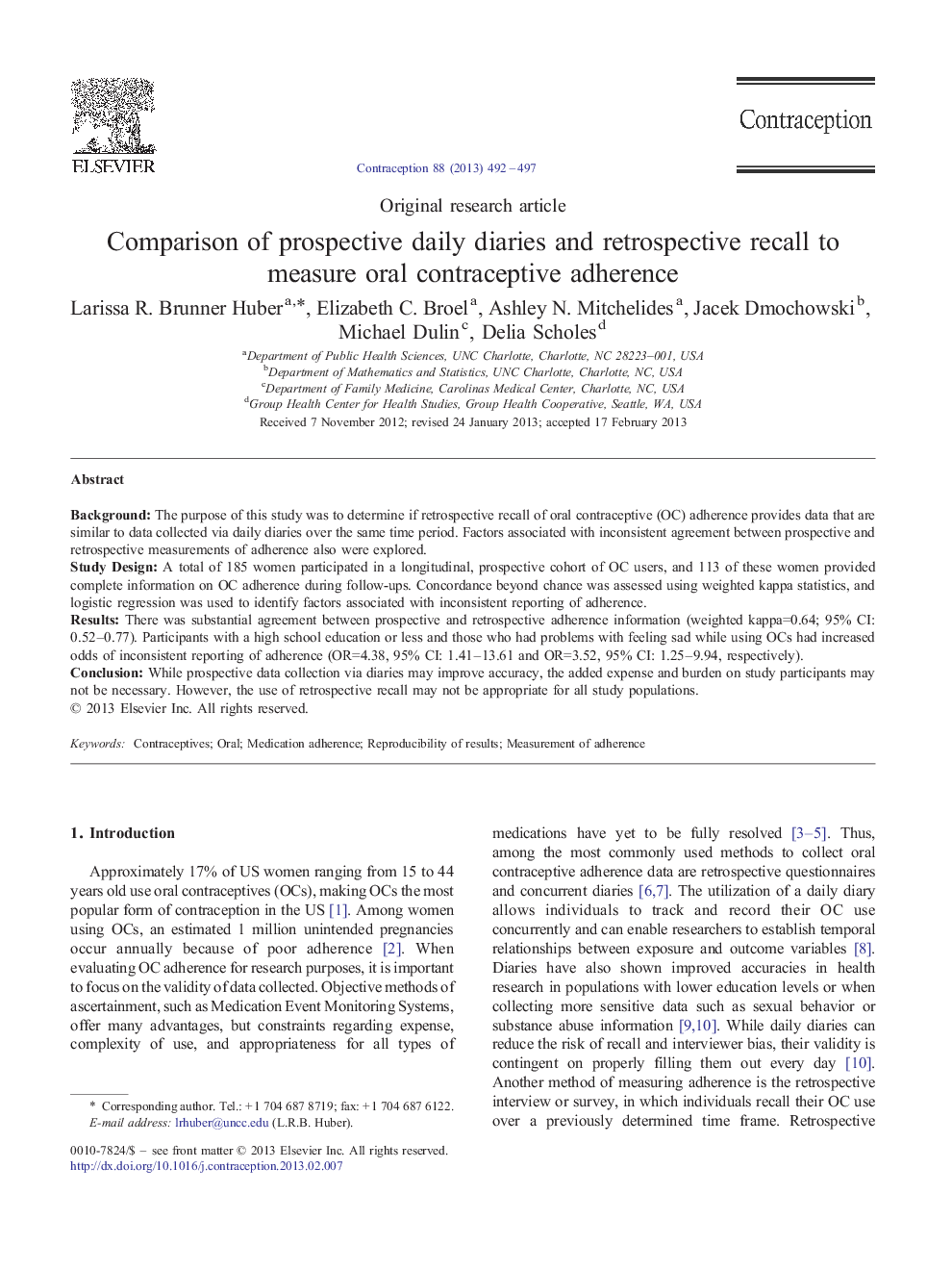| Article ID | Journal | Published Year | Pages | File Type |
|---|---|---|---|---|
| 3913720 | Contraception | 2013 | 6 Pages |
BackgroundThe purpose of this study was to determine if retrospective recall of oral contraceptive (OC) adherence provides data that are similar to data collected via daily diaries over the same time period. Factors associated with inconsistent agreement between prospective and retrospective measurements of adherence also were explored.Study DesignA total of 185 women participated in a longitudinal, prospective cohort of OC users, and 113 of these women provided complete information on OC adherence during follow-ups. Concordance beyond chance was assessed using weighted kappa statistics, and logistic regression was used to identify factors associated with inconsistent reporting of adherence.ResultsThere was substantial agreement between prospective and retrospective adherence information (weighted kappa=0.64; 95% CI: 0.52–0.77). Participants with a high school education or less and those who had problems with feeling sad while using OCs had increased odds of inconsistent reporting of adherence (OR=4.38, 95% CI: 1.41–13.61 and OR=3.52, 95% CI: 1.25–9.94, respectively).ConclusionWhile prospective data collection via diaries may improve accuracy, the added expense and burden on study participants may not be necessary. However, the use of retrospective recall may not be appropriate for all study populations.
